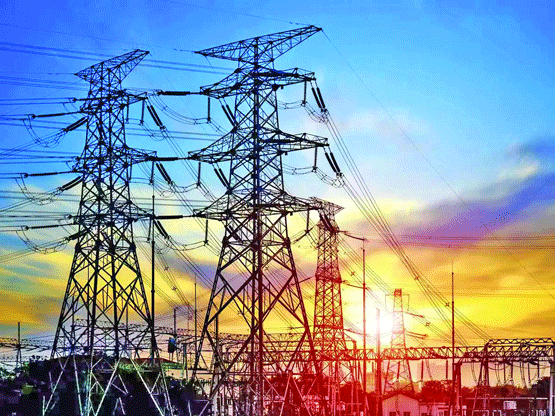PDB has to pay Tk 36,000 cr as capacity charge
Power generation to cross 30,000 MW in FY 2024
Staff Correspondent: An official source of the state-owned Bangladesh Power Development Board (BPDB) said that 5,543 megawatts of new electricity will be added to the grid this year and the board has to pay over Tk 36,000 crore to the private producers as capacity charges.
Bangladesh is going to cross the limit of 30,000 MW power generation. At the same time, the unused power generation capacity is also increasing by 50 percent within the current year.
According to government sources, the country’s total installed power generation capacity, including grid and off-grid power, is currently 28,159 MW.
According to official statistics, it will be 31,273 MW by this year. Of this, more than 50 percent will remain unused. Currently, the electricity demand in the country is 16,000 megawatts.
According to the statistics of the state-owned Bangladesh Power Development Board (BPDB), the power generation capacity currently connected to the grid is 24,911 MW. Apart from this, off-grid power generation capacity including captive and renewable energy is 3,248 MW.
There is no major change in captive power generation, especially off-grid power. Such power is mainly used in industrial establishments.
According to government statistics, the power generation connected to the national grid was 22,482 MW as on August 1, 2022. Till the same time of this year, this electricity production has been 22,911 megawatts. That is, electricity production has increased by 2,429 megawatts in one year.
Currently another 3,114 MW power is in the pipeline to be connected to the national grid within the next six months. In this, the country’s total power generation capacity will reach 31,273 megawatts.
A top official of the state-owned Bangladesh Power Development Board (BPDB) said, “In all, 5,543 megawatts of new electricity will be added to the grid this year.” Although the demand may increase by another 1,000 MW during this period.
The official said on condition of anonymity, “The interesting thing is that all the new power is coming from the private sector and not from the government plants.” However, sources related to the matter said that around 400 MW power plants run on rent may be shut down during this period.
Many consumers may be happy with the huge increase in power generation capacity, officials said. However, it will be a concern for the authorities to pay capacity charges or operating costs by leaving 50 percent of the power generation capacity unused.
Last financial year (2022-23), we had to pay Tk 26,000 crore as capacity charges and this fiscal year, the amount will reach Tk 36,000 crore, said a top BPDB official on condition of anonymity.
Another challenge with capacity payments is that the country’s foreign exchange reserves have fallen to $23 billion from $48 billion just a year ago, but more than 90 percent of payments will be made in foreign currency.
Capacity charge is a type of guaranteed payment under a power purchase agreement (PPA). It is payable whether or not BPDB buys power from a private producer.
Another BPDB official said, “Compared to two years ago, our capacity payment will increase by 80 to 90 percent in the current financial year.
Several new power plants have already been connected to the grid or are in the process of being connected, government statistics show. Among them, 1,600 MW from Adani Group’s coal-based power plant, 620 MW from Rampal Power Plant, 1,224 MW from S Alam Group’s power plant in Bashkhali, Chittagong, 718 MW from Reliance Power LNG-based plant at Meghnaghat, LNG-based GE-Summit Meghnaghat 590 MW from -2 power plant and 584 MW from LNG-based Unique Group power plant at Meghnaghat are being added to the grid.
Government statistics also revealed that BPDB is facing problems due to shortage of funds. Because its outstanding bill in the private sector now stands at Tk 25,946 crore till April this year.
A BPDB official said, “However, if the bills of May and July of the private sector are added, it can reach Tk 35,000 crore.”
Center for Policy Dialogue (CPD) Research Director Dr. Khondkar Gholam Moazzem said the authorities should immediately apply ‘force majeure’ to stop capacity payments to introduce ‘power no payment’ system to reduce BPDB’s burden.
Second, the government should move away from plans to install import-based LNG-fired power plants and prioritize the installation of renewable power plants. In this case, local gas exploration should be undertaken. Otherwise, the situation will go out of control, he said.
Rare Israeli airstrike in Beirut kills Hezbollah commander and more than a dozen others
International Desk: Israel launched a rare airstrike that killed a senior Hezbollah milita…








